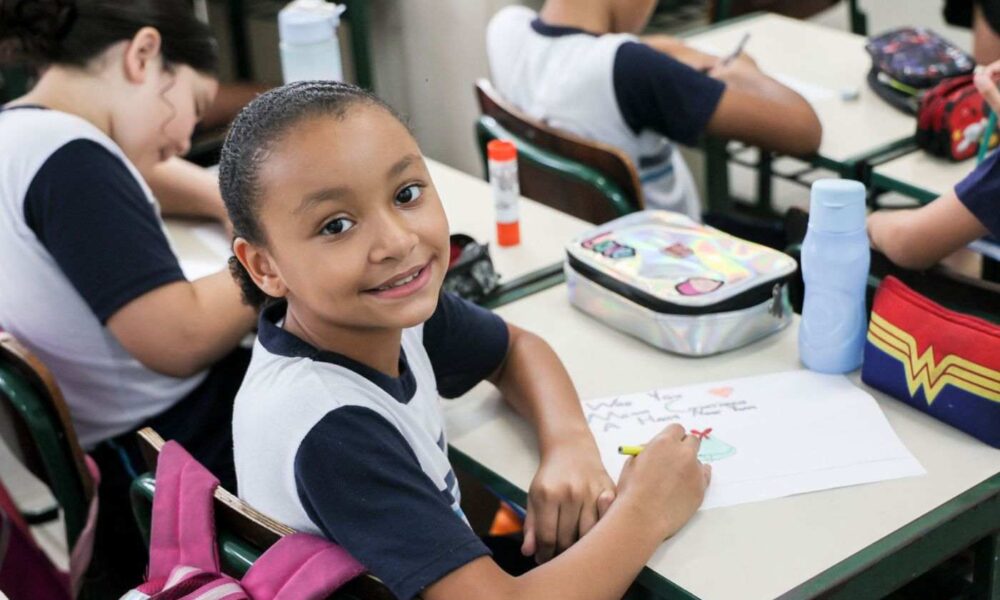To unite the linguistic and cultural contents of English teaching, Professor Cibele Capatto, of Emeb Armanda Santina Polenti, of Parque São Luiz, in Jundiaí, opted for a proposal that is both traditional and daring. This past semester, she promoted a correspondence activity for 3rd grade students with children from a school in Hood River, Oregon, a state located in the northwest region of the United States.
“The idea came to me when I accessed the ePals platform, which means correspondents in English. I signed up and we started working with Professor Matt Rudledge’s class,” he explained.
Initially, the children exchanged emails in a foreign language. Then the exchange of letters began. The first of them, with drawings and texts, so that the correspondents know their respective realities. Then it was time to exchange postcards. “As I couldn’t find postcards to buy, I decided to compose them myself, highlighting city themes, such as the Botanical Garden, Children’s World, Carnival and the Pink Grape of the Niagara,” commented the teacher.
To conclude the activities, the 3rd year C classes created Christmas and New Year letters to send to their friends. For the first time writing a letter, little Louise Araújo, aged eight, drew something special with the Christmas tree and the presents. “I’m going to add a snowman, which we don’t have here in Brazil because of the heat, but which my correspondent certainly knows, because it’s cold there.”
Bernardo Silva, nine years old, shares what he learned to practice this activity. “I learned the months of the year, how to write December in English, as well as the words used to wish a Merry Christmas and a Happy New Year. Writing a letter is different, it leaves you waiting, which turns into joy when the answer arrives,” replied Bernardo, who also drew a snowman, with a Santa hat and a carrot for a nose.
“The “Dissociation of School” of the Innovative School program also takes place in this way, going beyond the classroom wall and exploring geographical knowledge, customs and vocabulary, knowledge so important for learning a new language. Not to mention the saving of correspondence through letters, something that most children have not yet had the opportunity to face, but very relevant in the history of communication between people,” commented the official of Education, Vastí Ferrari Marques.

“Typical zombieaholic. General twitter fanatic. Food fanatic. Gamer. Unapologetic analyst.”







